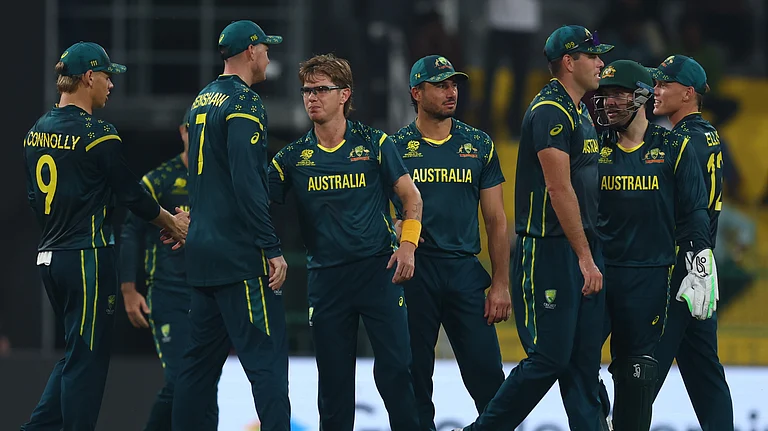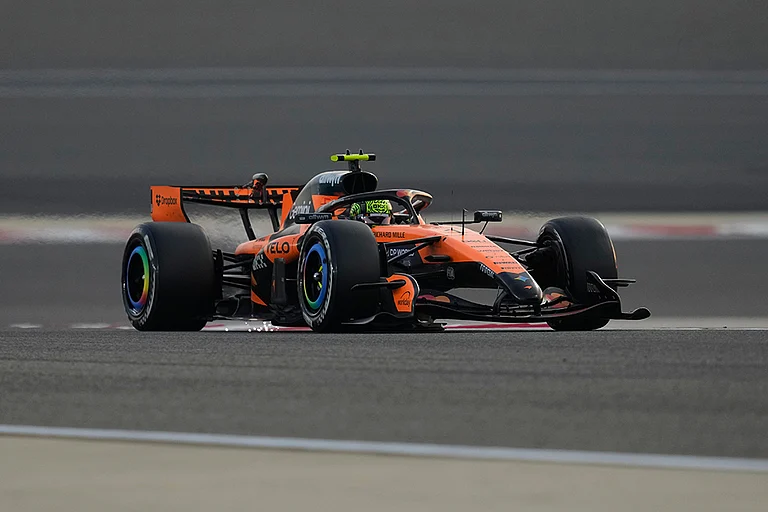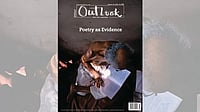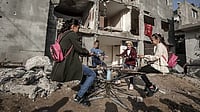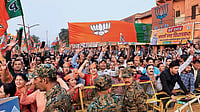Away from the public glare, the Intelligence Bureau officers in mufti always work along with their political bosses seeking means to resolve conflict—be it political or insurgency-related. Though the IB was created by the British to collect social, religious and political intelligence, this is the first time an IB officer has been chosen to become the face of a conflict resolution mechanism. Something, the academicians, bureaucrats and out-of-work politicians haven’t really appreciated. But the IB represents the Indian state more than any other wing of the government. So, it is interesting to see what a career intelligence officer can achieve in Kashmir. Dineshwar Sharma, a Kerala-cadre IPS officer who till recently was IB director, is soft-spoken and amiable, a dove in the IB if there can be one. He spoke to Outlook about his new assignment as the interlocutor for Jammu and Kashmir.
You are under severe attack from the regular Kashmir hands and old interlocutors. Is this a case of sour grapes?
They all have a lot of experience in handling Kashmir issues. First of all, I will go and meet all those who have been critical of the present initiative of the government of India. I will take their blessings and views and definitely I will factor in those views when I start talking to the people of Kashmir. I will also give their suggestions to the government.
The attack, interestingly, is even focused on the IB and its efficiency. Now these critics are questioning the quality of IB inputs to the government.
Since I have been an IB director, defending that organisation may not be correct. So, in my view, this question should be asked to those who are getting IB reports. I cannot comment on whether or not IB has been giving correct inputs; this can be only said by those who are at the helm of the government. Only they can give an answer.
As an assistant director and number 2 in IB’s unit in Srinagar in 1992 what was your experience in handling insurgency?
I think while terrorism is handled by the armed forces, the people of Jammu and Kashmir need a human touch. We need talks to resolve the people’s problems, to address the sentiments of those people if they have any grievances. There must be some way by which these grievances are heard and action taken.
Many parts of the country had earlier erupted in secessionist violence. We had secessionist arguments in Punjab, Northeast and even in Tamil Nadu. How is Kashmir different?
One of the major differences is that Kashmir militancy or terrorism has been initiated, supported and sustained from across the border. The whole movement was started with open support from across the border. Youth were lured, trained, armed and financed from a place outside India with total support of a government. That is the difference.
So will you call it the unfinished agenda of Partition as far as Pakistan is concerned?
Pakistan has said so, but I don’t think that their objectives will ever be achieved.
Some even say that Pakistan is seeking revenge for the creation of Bangladesh.
That they have been trying right from 1971 (when the India-Pakistan war happened while liberating Bangladesh), but in that process I think they have suffered much more than the damage they could inflict on India.
In the case of Punjab militancy, of course, the security forces had sacrificed a lot, but the main contribution towards restoring normalcy was made by the people of that state. And I am sure that the people of Jammu and Kashmir would also respond in the same manner and finish off all kinds of unrest in their state.
Robin Raphael, the former US assistant secretary of state, was supposed to have helped create the Hurriyat Conference in the early 1990s. But now there is a dramatic shift with the US declaring Syed Salauddiin’s Hizbul Mujahiddin a terrorist organisation. Is this the best atmosphere to start talks?
After 9/11, there is a new realisation about terrorism. That has spread across the world today. So, the situation is very favourable for the government of India. Pakistan is isolated as far as the issue of terrorism is concerned. Now it is the people of J&K, particular the youth and students of the state, who have to realise that Pakistan is only playing a game and this is at the cost of their young lives.
You mentioned the youth and students. Do you have a formula to stop them from getting hurt? They are our children and future citizens. How do you intend to get the children and students back into the mainstream?
I will explain to them that today’s biggest challenge is radicalisation. The people of Jammu and Kashmir have to understand this. I would like to talk to them and explain the reasons, show them where they are headed, how they are being misguided and what future awaits them if they don’t change their course.
By merely talking to them, will they be convinced?
No, I will tell them that there are problems and we are trying to address their problems. Let me see if I can meet their aspirations, whatever aspirations they have about the future of Kashmir and about their own future.
Any suggestion, any gesture to embrace them?
In fact the whole process has started after the prime minister’s statement from the Red Fort on August 15. I am working out how to embrace them, how to convince them. I am sure that I will be able to do that.
I am willing to talk to all Indian citizens of Kashmir irrespective of which organisation and affiliation they belong to.







